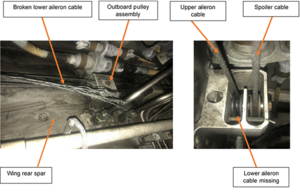- government sets out plans to protect the UK’s future cash system and ensure people have easy access to cash
- proposals would see cashback offered at shops without consumers having to make a purchase
- the Financial Conduct Authority would also be given overall responsibility for the UK’s retail cash system to protect consumers and SMEs
Under the government proposals, cashback without a purchase could be widely available from retailers of all sizes in local communities across the UK.
Although cash use is declining, with people increasingly choose cards, mobile and e-wallets to make payments, it remains crucial for groups across the UK – including the elderly and vulnerable. Many find that cash is more accessible than digital payments methods or that it helps them to budget and manage their finances.
These proposals, which also include making the Financial Conduct Authority (FCA) responsible for ensuring the cash system benefits consumers and SMEs, are the latest step in the Government’s effort to support the millions of people and business who rely on cash day to day.
John Glen, Economic Secretary to the Treasury, said:
We know that cash is still really important for consumers and businesses – that’s why we promised to legislate to protect access for everyone who needs it.
We want to harness the same creative thinking that has driven innovation in digital payments to maintain the UK’s cash system and make sure people can easily access cash in their local area.
To ensure no one is left behind by the transition to digital payments, the government announced at the March 2020 Budget that it would legislate to protect access to cash and ensure that the UK’s cash infrastructure is sustainable in the long-term.
Today it is seeking views on its approach to this legislation from consumer organisations, businesses, financial institutions, providers of ATM and payment services and others through a call for evidence.
One proposal under consideration is cashback without a purchase, which could help to keep cash widely available by reducing cash infrastructure costs.
When local shops accept and dispense cash, it is recycled through local communities and there is less need to transport and distribute notes and coins via cash centres, which reduces the associated costs.
Last year, consumers received £3.8 billion of cashback when paying for items at a till – making it the second most used method for withdrawing cash in the UK behind ATMs.
Current EU law makes it difficult for businesses to offer cashback when people are not paying for goods and this has been a barrier to widespread adoption. The Government is now considering scrapping these rules once the transition period ends on 31 December 2020.
The government is also considering giving the FCA overall responsibility for maintaining a well-functioning retail cash system given its existing regulatory role and consumer protection objective.
At present, The Bank of England, Financial Conduct Authority, Payment Systems Regulator, and HM Treasury each have specific roles and responsibilities for oversight of the cash system. Close coordination between these authorities has been highly effective, particularly in managing risks to cash through Covid-19, but there may be significant benefits to giving a single authority overall responsibility for setting requirements to meet the cash needs of consumers and SMEs.
The call for evidence opens today (15 October 2020) and will run for six weeks. It will seek views on how to ensure industry continues to offer ways to withdraw and deposit cash, how to improve cashback, what affects cash acceptance, and where regulatory responsibility should sit.
More detail on the government’s proposals is available in the Access to Cash Call for Evidence document.
The Call for evidence will close on 25 November 2020.
Cashback without a purchase: Unlike cashback with a purchase, cashback without a purchase is not explicitly exempted from the definition of a payment service under the EU’s Second Payment Services Directive. Cashback without a purchase constitutes a regulated payment service and generally only suitably registered or authorised businesses such as banks and payment institutions are permitted to provide payment services in the UK. Without legislative changes, the provision of cashback without a purchase would require that retailers are registered or authorised to provide the regulated service, or act as an agent of a payment service provider, such as the acquirer or the customer’s card issuer.
Regulatory oversight of the cash system: The Bank of England, FCA, PSR, and HM Treasury each have various roles and responsibilities for the cash system (set out below) and coordinate closely through the Joint Authorities Cash Strategy (JACS) Group:
- HM Treasury is the UK’s economics and finance ministry, with responsibility for financial services public policy and financial legislation, including setting the objectives and remits for the financial regulators.
- The Bank of England has primary functions to maintain monetary stability and oversee financial stability of the UK financial system. Its responsibilities for monetary stability include monetary policy, the issuing of bank notes, and maintaining confidence in the physical currency.
- The Financial Conduct Authority is the conduct regulator for regulated financial services firms. The FCA has statutory objectives to protect and enhance the integrity of the UK financial system, to ensure an appropriate degree of protection for consumers of financial services (including when the acceptance of cash deposits or a cash withdrawal service is a regulated activity or payment service), and to promote effective competition in the interest of consumers.
- The Payment Systems Regulator is an economic regulator, and an operationally independent subsidiary of the FCA. It has statutory responsibilities to promote the interests of business and consumers that use payments systems, as well as to promote competition and innovation within payments. In line with this, the PSR is responsible for regulating the ATM network as overseen by LINK.
Whilst the JACS Group has been an important and highly beneficial initiative, it is not a decision-making body, and it remains the case at present that no single authority has overall responsibility for overseeing the maintenance of a well-functioning UK cash system for the benefit of consumers. Whilst effective coordination between the financial authorities will continue to be critical, the government considers there may be significant benefit in giving a single authority overall responsibility for setting requirements to ensure that the retail distribution of cash meets the needs of consumers and SMEs.


